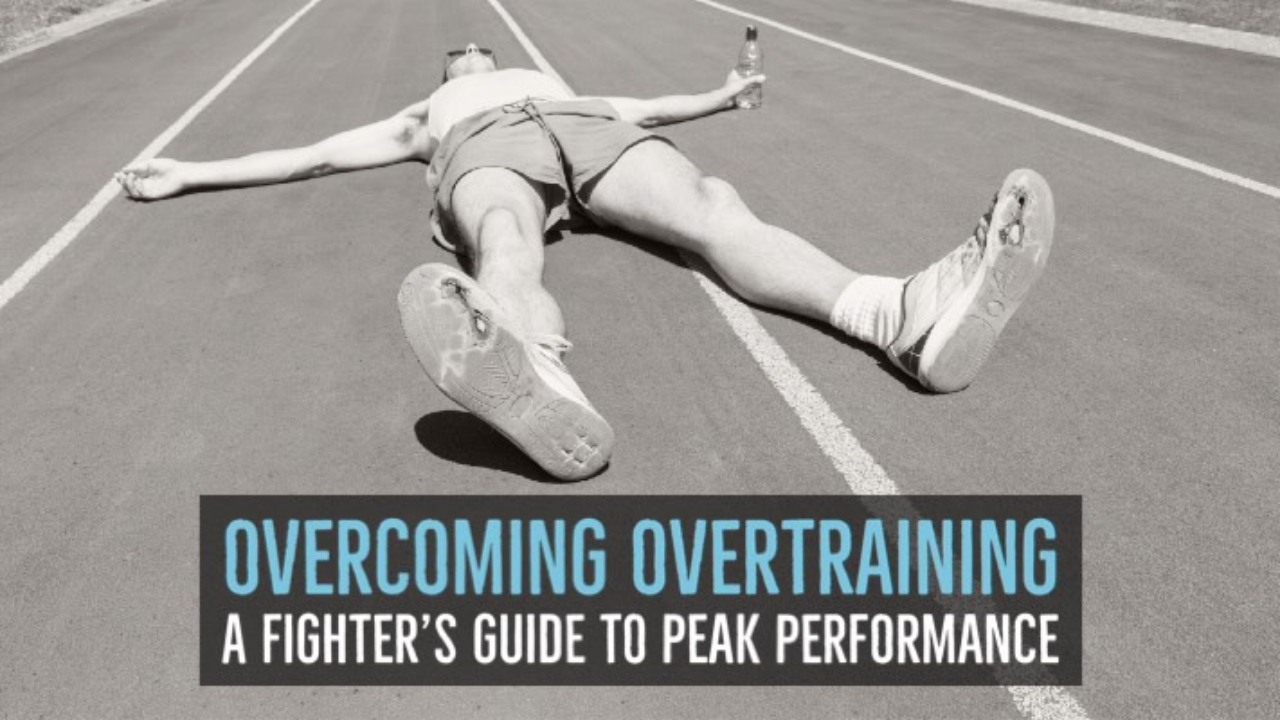
Overcoming Overtraining: A Fighter's Guide to Peak Performance
After talking with professionals around the globe, finding a healthy balance between effort and rest is a challenge for most fighters and grapplers. Athletes and coaches in this space are constantly pushing themselves to the limit. At first glance, their determination is admirable. But upon closer inspection, it's clear that this tenacity might be doing more harm than good.
What is Over-reaching/Over-training?
Before diving deep, let's understand what we're dealing with:
- Over-reaching: A short-term performance decrement, from which recovery takes a few days to a few weeks. This can be purposeful, to push limits, but requires proper recovery.
- Over-training: A long-term performance decrement, from which recovery can take several weeks to months.
Both involve a decrease in performance, but overtraining is more severe and long-lasting.
The Mystery of Parasympathetic Dominance
You might have heard the term "parasympathetic dominance." It sounds complicated, but let's break it down:
-
The Autonomic Nervous System (ANS): It controls involuntary body functions and has two main branches: sympathetic ("fight or flight") and parasympathetic ("rest and digest").
-
Sympathetic Dominance: Think adrenaline. It's that pre-fight rush, the excitement, the nerves.
-
Parasympathetic Dominance: This is the body's way of saying, "Let's take a break." It's like the cool-down after an intense sparring session.
What Does Parasympathetic Dominance Feel Like?
- Chronic fatigue and tiredness
- Decreased motivation to train
- Mood swings and irritability
- Persistent muscle soreness
- Decreased performance
- Sleep disturbances1
Why Fighters and Grapplers Are Susceptible
- High-Intensity Training: The nature of martial arts is demanding. It's common to have multiple intense sessions in a day.
- Pressure to Perform: The pressure to always be at peak performance can push athletes to train even when they should rest.
- Lack of Recovery Knowledge: Not all fighters are aware of the importance of recovery.
Tips to Avoid Overtraining
- Listen to Your Body: If you're feeling drained, take it as a sign. Your body knows best.
- Incorporate Active Recovery: This could be light drills, stretching, or even yoga.
- Prioritize Sleep: Aim for 7-9 hours of quality sleep2.
- Stay Hydrated: Water assists in recovery and helps avoid muscle cramps.
- Nutrition Matters: Fuel your body with the right mix of protein, carbs, and fats.
- Regular Check-ins: Monitor your heart rate variability and other indicators to gauge your body's stress response.
- Schedule Rest Days: It's not a sign of weakness; it's smart training.
Conclusion
Overtraining isn't a badge of honor. The best fighters know that the secret to peak performance isn't just about training hard—it's about training smart. By understanding the signs of overtraining and implementing strategies for optimal recovery, you can ensure longevity and success in your fighting career.
Remember, it's not about how hard you can hit, but how smart you can train. Keep fighting the good fight, and train smart!
Citations:




